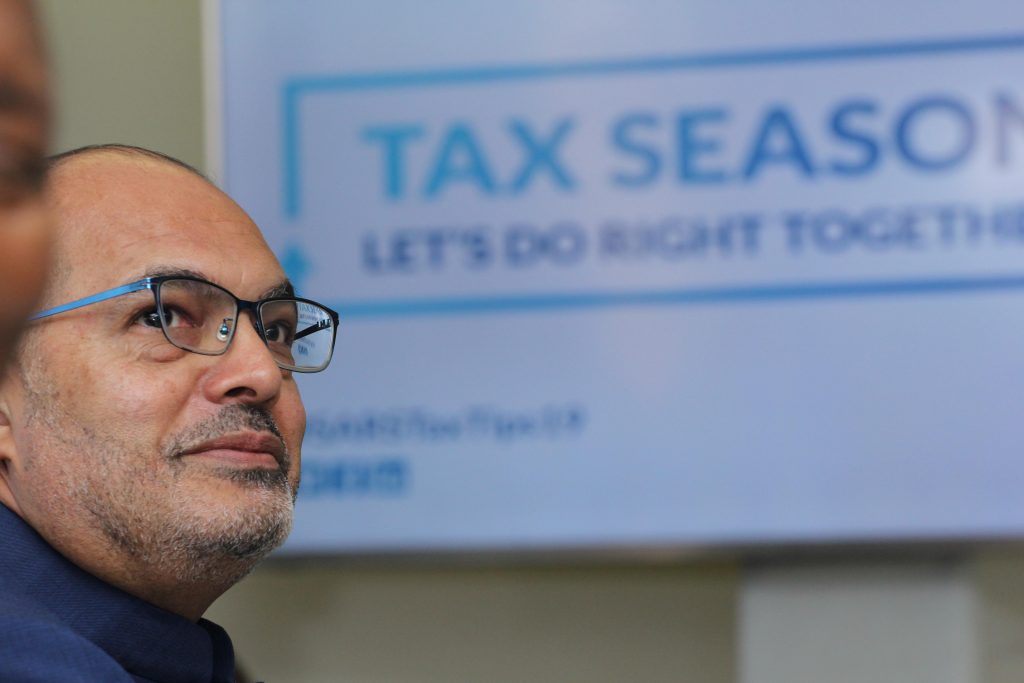Cape Town Mayor Geordin Hill-Lewis has hit back at the court challenge by the South African Property Owners Association (Sapoa) to the city’s newly introduced fixed charges for water, cleaning and sanitation, which are linked to property value.
Sapoa has brought an urgent application to have the charges reviewed and set aside. It is asking the Western Cape Division of the High Court to suspend the order for two months to give the city an opportunity to rectify the tariffs.
ADVERTISEMENT
CONTINUE READING BELOW
Read: Sapoa takes Cape Town tariffs fight to court
If it is impossible to do that in isolation, the association asks that the whole budget be set aside, and the order suspended for two months so the city can rectify it and ensure that the budget remains funded.
In a strongly worded statement issued on Thursday morning, Hill-Lewis said Sapoa’s “attempt to stop Cape Town’s pro-poor budget is to protect their own vested interests, and puts their profits ahead of the people of Cape Town”.
“Sapoa represents the country’s wealthiest and largest property owners – mainly shopping mall owners – who have benefited significantly over the years from Cape Town’s functionality and success.
“However, they now argue that the city should charge the biggest property owners the same as individual low-income families,” he stated.
“The City simply cannot agree that wealthy property owners should be charged the same as lower-income or middle-class households. This would be regressive, would place a disproportionate burden on ordinary families, and would be patently unfair.”
Read:
Cape Town’s R76.4bn budget finally gets the green light
Sapoa to challenge Joburg CCTV by-law in court
Cape Town budget 2.0: Hill-Lewis tables scaled back tariff increases
Hill-Lewis argued that the city’s budget protects homes under R2.5 million and extends rates relief to many more middle-class homes, all while preserving the city’s critical infrastructure and service investments.
“In contrast, this court application by the richest of the rich property portfolio holders seeks to go back to a system of regressive taxation which hits ordinary families, and the poor, the hardest.”
Sapoa however, said in its court papers: “A reduction or rebate cannot cure a charge which was unlawfully imposed.”
According to Hill-Lewis, the effect, if Sapoa succeeds, would be “to have ordinary families effectively subsidising the wealthiest property owners”.
He said the city scrapped the old ‘pipe levy’ charge – which arbitrarily linked fixed charges to a home’s pipe connection size – because it was unsustainable for R50 million and R500 000 homes to make equal contributions to Cape Town’s infrastructure and fixed service costs.
“Fixed charges linked to property value is a lawful, fairer, and equitable way for Capetonians to contribute within their means to our city’s infrastructure programme and fixed service costs.
“Cross-subsidising – where the better off among us help to fund services for the less fortunate – is the only sustainable way to ensure a working city of hope for all.”
No ‘workable alternative’ offered, says mayor
Both Hill-Lewis and Sapoa acknowledged that there was extensive engagement between them about the budget – but Hill-Lewis added that Sapoa had offered no workable alternative means of distributing fixed infrastructure and service costs among ratepayers.
“The only alternative to fixed charges linked to property value, is for everyone to pay a flat charge regardless of whether you are low-income or affluent,” he said.
ADVERTISEMENT:
CONTINUE READING BELOW
“This is not a sustainable nor fair way to fund infrastructure investment and the fixed costs of service delivery. If a flat charge of say R500 is billed, and one household earns R20 000 while the other earns R100 000 a month, this charge represents 2,5% and 0,5% of their monthly income respectively.
“This means the impact on the lower-income household is actually five times more than on the higher-income household, which is regressive and inequitable,” he said.
Questions around legality and timing
Hill-Lewis did not in his statement respond to the specific challenge to the legality of linking the fixed charges to property value.
Sapoa maintains that the charges are in fact property rates imposed unlawfully, because it does not comply with the Property Rates Act.
It argues that city is acting outside its legal mandate by imposing these charges in the absence of any link to consumption.
The new budget with the three offending charges was implemented on 1 July and residents will get their first bills reflecting these tariffs towards the end of this month.
No court date has been set yet, but Sapoa asked for an expedited date so there can be certainty for all involved before the preparations for the 2025/26 budget start on 1 September.
The organisation specifically states in its court documents that it is bringing a constitutional challenge not only on behalf of its members, but also in the public interest and wants the relief to apply to all Cape Town rate payers.
It also published a notice of the action to inform other parties of it, should they want to join as friends of the court.
‘Punitive, not redistributive’
Good Party Secretary-General Brett Heron said in a statement Hill-Lewis’s attempt to paint critics of the city’s 2025/26 budget as enemies of the poor is disingenuous and misleading.
“His attack on [Sapoa] for challenging the legality of linking fixed tariffs to property values is nothing more than political deflection from a deeply flawed budgeting approach.”
Heron said the Good Party supports the principle of a redistributive budget, one in which wealthy households contribute more to help fund improved services and opportunities in impoverished areas.
“But this budget is not that. It is not redistributive, it is punitive and increasingly unaffordable for working and middle-class families.”
Follow Moneyweb’s in-depth finance and business news on WhatsApp here.

 5 hours ago
1
5 hours ago
1






















 English (US) ·
English (US) ·